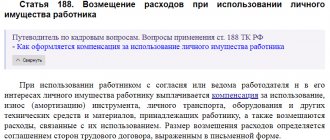The structure of offenses in the financial sector changes every year. Statistics show that modern computer technologies are increasingly used to commit crimes. One of the vulnerable areas is the use of bank plastic cards. Illegal payments or cash withdrawals from ATMs are regularly detected in Russia.
Criminal liability has been established for illegal circulation of payment funds under Article 187 of the Criminal Code of the Russian Federation. Let's look at the cases in which it occurs and what threatens attackers.
Article 187 of the Criminal Code of the Russian Federation: history and content
Article 187 of the Criminal Code of the Russian Federation appeared in Russian criminal legislation in 1996. At first it was called “Production or sale of counterfeit credit or payment cards and other payment documents.”
It was added to the code because with the development of information technology, new areas of activity appeared that needed to be protected at the legislative level .
According to the first edition of the article, it was criminally prosecuted for the production or sale of counterfeit credit or payment cards , as well as other payment documents not related to securities.
Latest changes to Art. 187 of the Criminal Code of the Russian Federation occurred in 2015. Then the article was renamed “Illegal circulation of means of payment.” Changes have also been made to the content. Criminal liability has been established for the production, storage, transportation and receipt for use or sale, as well as the sale itself :
- counterfeit payment cards;
- fake orders for the transfer of funds, documents or means of payment (except for counterfeit money and securities);
- electronic means and storage media, devices, computer programs for illegal money circulation.
Note : The circulation of funds refers to their receipt, issue and transfer.
Responsibility
Let's consider how illegal circulation of means of payment is punished :
| What are they punished for? | How to punish | Rule from the Criminal Code |
For production, storage, transportation and acquisition for use and sale, as well as for distribution:
|
| Part 1 art. 187 of the Criminal Code of the Russian Federation |
| The same actions, but committed by a group of people. |
| Part 2 art. 187 of the Criminal Code of the Russian Federation |
The severity of the punishment depends on the presence of aggravating circumstances . Among them is the commission of illegal circulation of means of payment by an organized group of persons. In this case, criminals face harsher punishment - up to seven years in prison with a fine of up to 1 million rubles.
It can be useful:
How to protect yourself if fraudsters withdraw money from your card
Banking fraud
Object and subject of the crime
Who is committing a crime and against what? The object of production or sale of illegal means of payment - the procedure for circulation of means of payment . It is important to distinguish between illegal circulation of means of payment and counterfeiting of funds.
In counterfeiting, banknotes - paper bills, metal coins or securities - are directly counterfeited. And in case of illegal circulation of means of payment, means of payment with the help of which non-cash payments are carried out are counterfeited.
The subject of the crime is a person . A sane individual who is over 16 years old is brought to justice.
Subject of the crime
Let's consider what is the subject of a crime under Article 187 of the Criminal Code of the Russian Federation. With the comments everything will become clear to you:
| Subject of the crime | A comment |
| Fake payment cards | The offense is committed in relation to three types of payment bank cards:
|
| Fake money transfer orders | Which money transfer orders are forged:
|
| Fake documents or means of payment | The legislation does not have an unambiguous interpretation of the terms. In practice, counterfeit documents or means of payment include, for example, store gift cards. They are not considered bank cards, but they are used to pay for goods in the store that issued the card. |
| Electronic media, tools, computer programs and technical devices intended for illegal circulation of money | This category includes flash cards, tablets, mobile phones, computer equipment and other means, as well as programs through which violators gain unauthorized access to manage bank accounts. |
Commentary to Art. 187 Criminal Code
1. The subject of the crime is payment cards, orders for the transfer of funds, documents or means of payment (except for the cases provided for in Article 186 of the Criminal Code); electronic means, electronic storage media, technical devices, computer programs intended for the unlawful acceptance, issuance, and transfer of funds.
2. The objective and subjective aspects of the crime are characterized by the same features as Art. 186 of the Criminal Code, and the rules for qualifying criminal actions in this case are the same as in Art. 186 of the Criminal Code.
Composition of the crime and its qualifications
The corpus delicti under Article 187 of the Criminal Code of the Russian Federation is formal and complex . With two alternative actions:
- Production of counterfeit means of payment . This action involves the complete re-creation or illegal production of cards issued by banks by unauthorized persons. Moreover, the fake card must be usable. Manufacturing is also expressed in the introduction of false information into real cards and other means of payment. For example, by falsifying document details or signatures.
- Sales of counterfeit means of payment . The sale of funds means their transfer to some other person. In this case, sales occur both on a paid and gratuitous basis. Examples: sale, donation, transfer for use, etc. Sales are considered a completed crime from the moment someone accepts at least one counterfeit means of payment from the offender.
Attention! The sale of counterfeit and obviously unusable means of payment (for example, obviously unusable bank payment cards) constitutes fraud and is qualified under Article 159 of the Criminal Code of the Russian Federation “Fraud”.
From judicial practice under Art. 187 of the Criminal Code of the Russian Federation
If the offender produced counterfeit bank cards not for sales purposes , but in order to unlawfully use them himself, the actions are not qualified under Article 187 of the Criminal Code of the Russian Federation. Such production qualifies as preparation for fraud.
The Moskovsky District Court of Cheboksary convicted citizen K. under Part 1 of Art. 187 of the Criminal Code of the Russian Federation. Sentence: imprisonment for two years and one month with a fine of 200 thousand rubles . By a resolution of the Presidium of the Supreme Court of the Chuvash Republic, the sentence was overturned for lack of corpus delicti.
Details from the case materials: K. prepared payment orders with false data entered into them and submitted them to the bank. According to these papers, money from the account of the organization in which K. was listed as a director was transferred to the bank cards of individuals for the purpose of cashing them out. K.'s remuneration was five percent of the amount cashed out.
Good to know:
Is it possible to find a scammer by phone number?
What to do if money or wallet is stolen from your pocket
K.’s actions are qualified under Art. 187 of the Criminal Code of the Russian Federation . The Moskovsky District Court of Cheboksary indicated that having prepared a fake payment order, K. sold it, presenting it to the bank for payment. The Supreme Court of the Chuvash Republic did not agree with this conclusion based on the fact that sales is the transfer of an illegal document by its manufacturer to another person. The presentation of a payment order to a banking institution by the manufacturer himself does not constitute the sale of a payment order under Art. 187 of the Criminal Code of the Russian Federation.
Second commentary to Art. 187 of the Criminal Code of the Russian Federation
1. The item may be counterfeit:
1) payment cards,
2) orders for the transfer of funds, documents or means of payment (except for the cases provided for in Article 186 of the Criminal Code),
3) electronic means, electronic storage media, technical devices, computer programs intended for the unlawful acceptance, issuance, and transfer of funds.
2. Electronic money, in accordance with Art. 3 Federal Law of June 27, 2011 No. 161-FZ “On the National Payment System” - funds that are previously provided by one person (the person who provided the funds) to another person, taking into account information about the amount of funds provided without opening a bank account (the obligated person ), to fulfill the monetary obligations of the person who provided the funds to third parties and in respect of which the person who provided the funds has the right to transmit orders exclusively using electronic means of payment. At the same time, funds received by organizations carrying out professional activities in the securities market, clearing activities, activities for organizing the attraction of investments and (or) activities for managing investment funds, mutual funds and non-state pension funds and accounting for information are not considered electronic funds. on the amount of funds provided without opening a bank account in accordance with the legislation regulating the activities of these organizations.
3. An electronic means of payment is a means and (or) method that allows a client of a money transfer operator to draw up, certify and transmit orders for the purpose of transferring funds within the framework of applicable forms of non-cash payments using information and communication technologies, electronic media, including including payment cards, as well as other technical devices (Article 3 of the 2011 law).
4. The objective side consists of the following forms:
1) manufacturing,
2) acquisition,
3) storage,
4) transportation,
5) sale of any of the objects of the crime.
5. Transportation involves moving objects of crime by any means.
6. Sales of counterfeit payment cards, orders for the transfer of funds, documents or means of payment (except for the cases provided for in Article 186 of the Criminal Code), as well as electronic funds, electronic storage media, technical devices, computer programs intended for unlawful reception, issuing, transferring funds that are obviously unsuitable for use constitutes fraud and is subject to qualification under Art. 1581 of the Criminal Code or the corresponding part of Art. 159 of the Criminal Code. In the case where a person manufactured, acquired, stored, transported for the purpose of sale the specified means of payment, which are obviously unsuitable for use, but due to circumstances beyond his control could not sell them, the act must be qualified in accordance with Part 1 of Art. 30 of the Criminal Code as preparation for fraud, if the circumstances of the case indicate that these actions were aimed at committing crimes under Part 3 or Part 4 of Art. 159 of the Criminal Code (clause 18 of the RF PPVS of November 30, 2017 No. 48
“On judicial practice in cases of fraud, misappropriation and embezzlement”).
7. The crime is completed at the moment of commission of any of the specified actions.
8. The subjective side is characterized by direct intent, and in the first four forms also by the purpose of use or sale.
9. If the production, acquisition, storage, transportation of counterfeit payment cards, orders for the transfer of funds, documents or means of payment (except for cases provided for in Article 186 of the Criminal Code), as well as electronic means, electronic storage media, technical devices, computer programs , intended for the unlawful acceptance, issuance, transfer of funds, the person committed for the purpose of using them to commit a crime under Part 3 or Part 4 of Art. 158 of the Criminal Code, part 3 or part 4 of Art. 159 of the Criminal Code, part 3 or part 4 of Art. 1593 of the Criminal Code or part 3 or part 4 of Art. 1596 of the Criminal Code, which due to circumstances beyond his control could not be completed, then what was done should be qualified as a combination of preparation for the specified crime and the completed crime provided for in Art. 187 of the Criminal Code (clause 18 of the RF PPVS of November 30, 2022).
10. Subject - a person who has reached the age of 16 years.
11. In part 2 of Art. 187 of the Criminal Code provides for a qualifying feature - the commission of a crime by an organized group.




